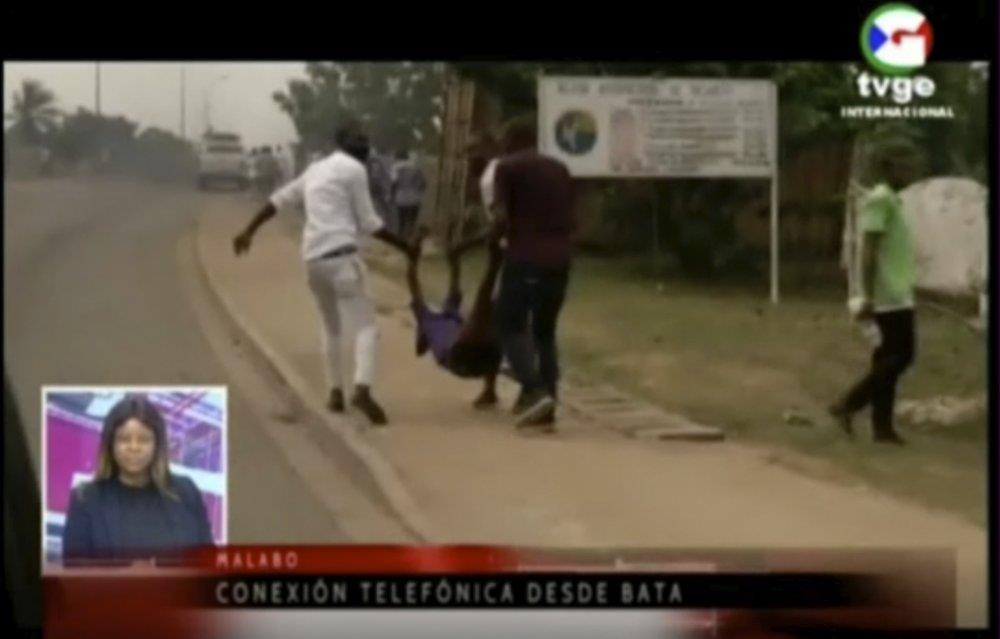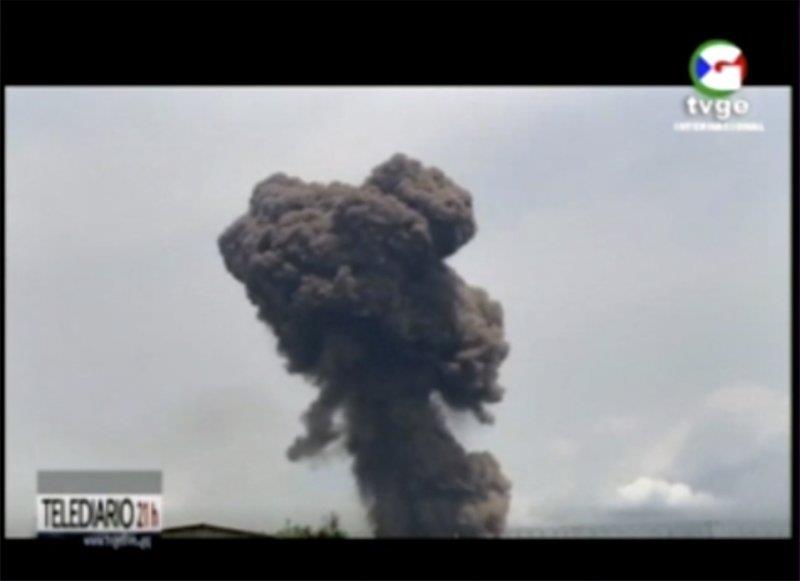Big explosion in Equatorial Guinea barracks: at least 20 people were killed and 600 injured.


Screen shot
At 16: 00 local time on the 7th (Beijing time at 23: 00 on the 7th), a big explosion occurred in Bata No.1 military camp, the largest city in Equatorial Guinea, a central African country. Up to now, at least 20 people have been killed and more than 600 others have been injured. Equatorial Guinean President Obiang said that the explosion was caused by "improper disposal of explosives".
Arsenal explosion or caused by burning farmland
The Associated Press reported on the 8th that the Ministry of National Defense of Equatorial Guinea issued a statement later on the 7th, saying that a series of explosions in the military camp near the Mondong Nkuantoma community were caused by the fire igniting high-explosive explosives, and relevant investigations are still in progress. Obiang said in a statement written in Spanish that the fire may have been caused by local residents burning farmland near the military camp.
Images broadcast by Equatorial Guinea’s national television show that after the explosion, people scattered and fled, and huge smoke emerged above the explosion site. Many people shouted: "Although we don’t know what happened, everything was destroyed." The Associated Press quoted local media reports that local people were screaming and crying in the streets full of debris and smoke, and the iron roofs of many houses had been uncovered by the exploding air billow and scattered in the rubble.
Al Jazeera reported on the 7th that most houses in the area affected by the explosion were blown up to only one or two walls. Many people picked out the dead and wounded from the rubble, and some of the dead were wrapped in sheets and transported away. The local media also called on people to donate blood, saying that the hospital was "overcrowded".
On the 7th, CNN)7 pointed out that the Ministry of Health of Equatorial Guinea also called on volunteers to go to hospitals in Bata area for support on Twitter. "Health workers and fire brigades are providing treatment for the injured and transferring the seriously injured to the hospital."
A doctor named Florentino said in an interview with TVGE TV in Equatorial Guinea that the country is in a "crisis moment" and hospitals are overcrowded.
Macuto, a local radio station, said on Twitter that residents of Bata had been evacuated four kilometers away from Fiona Fang, the scene of the explosion, because the smoke generated by the explosion might be harmful to human health.
Equatorial Guinea Foreign Minister asks for assistance.
After the explosion, Simeón Oyono Esono Angue, the foreign minister of Equatorial Guinea, met with ambassadors from many countries and asked for assistance. "It is important to ask our brother countries to help us in this sad situation, because we are not only facing a medical emergency (COVID-19 epidemic), but also a tragedy in Bata."
Spanish Foreign Minister Gonzá lez wrote on Twitter that the development in Equatorial Guinea was "worrying" after the Bata explosion, and the Spanish Embassy in Malabo, the capital of Equatorial Guinea, asked western nationals to stay at home. Brochenin Olivier, the French ambassador to Equatorial Guinea, expressed condolences to "the disaster that just happened in Bata".
According to Agence France-Presse, the son of President Obiang — — Teodoro Nguema Teodoro Nguema Obiang Mangue, Vice President in charge of national defense and security affairs, accompanied by Israeli bodyguards, inspected the explosion site.
According to the website of the Ministry of Foreign Affairs of China, Equatorial Guinea is located in central and western Africa, bordering the Atlantic Ocean in the west, Cameroon in the north and Gabon in the east and south. The coastline is 482 kilometers long and covers an area of 28,051 square kilometers (including 26,017 square kilometers in mainland China and 2,034 square kilometers in islands).
Since 1845, Spain has established colonial rule in Equatorial Guinea. On October 12, 1968, Equatorial Guinea officially declared its independence and established the Republic of Equatorial Guinea. After independence, Equatorial Guinea’s economy was in long-term difficulties. After oil exploitation began in 1991, the economy turned around, with an average annual economic growth rate of 31.9% from 1997 to 2004. However, due to the drop in international crude oil prices in recent years, Equatorial Guinea’s economy has experienced continuous negative growth, foreign exchange reserves have been greatly reduced, and financial difficulties have arisen.
By 2018, the total population of Equatorial Guinea reached 1.3 million. The official language is Spanish, French is the second official language and Portuguese is the third official language. The national languages are mainly Arabic and Bubi. 82% of the residents believe in Catholicism and 15% believe in Islam.